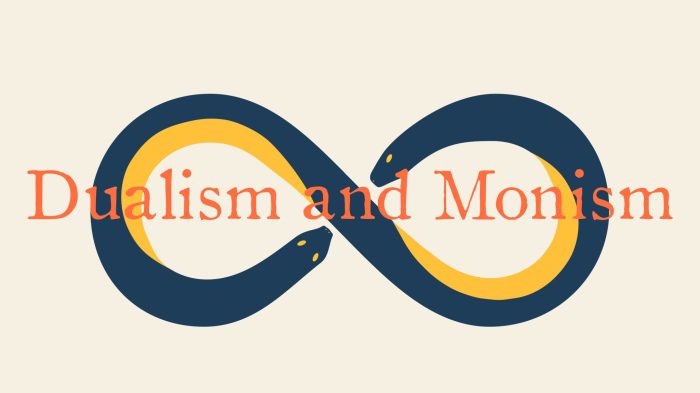Ethical monism is the theory that all genuine moral values are ultimately reducible to a single fundamental value or principle. This theory has been a subject of philosophical debate for centuries, and it continues to be a topic of interest for scholars and philosophers today.
In this article, we will explore the metaphysical basis of ethical monism, identify the different types of ethical monism, and discuss the ethical implications of adopting an ethical monist perspective.
Ethical monism is based on the assumption that there is a single, underlying reality that is the source of all moral values. This reality may be conceived of as a natural property, such as pleasure or happiness, or it may be conceived of as a supernatural being, such as God.
Regardless of how it is conceived, the fundamental assumption of ethical monism is that there is a single, objective source of moral value.
Ethical Monism: A Metaphysical and Ethical Theory: Ethical Monism Is The Theory That

Ethical monism is a theory in ethics that holds that there is only one fundamental ethical principle or value. This principle or value is the basis for all ethical judgments and actions. Ethical monism stands in contrast to ethical pluralism, which holds that there are multiple, irreducible ethical principles or values.Metaphysically,
ethical monism is based on the idea that there is only one fundamental reality or substance. This reality or substance is the source of all ethical value. Ethical monists argue that this fundamental reality is either God, nature, or some other single, ultimate source of value.
Types of Ethical Monism
There are different types of ethical monism, each based on a different understanding of the fundamental ethical principle or value.
- Axiological monismholds that there is only one intrinsic value, such as happiness, pleasure, or virtue. All other values are derived from this fundamental value.
- Teleological monismholds that the rightness or wrongness of an action is determined by its consequences. The action that produces the most good or the least harm is the right action.
Ethical Implications of Ethical Monism
Ethical monism has a number of ethical implications. First, it implies that there is a single, objective standard of right and wrong. This standard is not relative to individual preferences or circumstances. Second, ethical monism implies that there is a single, ultimate goal of human life.
This goal is the realization of the fundamental ethical principle or value. Third, ethical monism implies that there is a single, right way to live. This way of life is the one that is most consistent with the fundamental ethical principle or value.
Comparison to Ethical Pluralism
Ethical monism is often contrasted with ethical pluralism. Ethical pluralism holds that there are multiple, irreducible ethical principles or values. These principles or values may conflict with each other, and there is no single, objective way to resolve these conflicts.Ethical
monism and ethical pluralism have different implications for ethical decision-making. Ethical monism implies that there is a single, right answer to every ethical dilemma. Ethical pluralism, on the other hand, implies that there may be multiple, equally valid answers to an ethical dilemma.
Historical and Contemporary Perspectives, Ethical monism is the theory that
Ethical monism has a long history in Western philosophy. It was first proposed by Plato and Aristotle, and it has been defended by many philosophers since then. In recent years, ethical monism has been revived by philosophers such as Thomas Nagel and Samuel Scheffler.There
are a number of contemporary debates surrounding ethical monism. One debate concerns the nature of the fundamental ethical principle or value. Another debate concerns the relationship between ethical monism and other metaphysical theories.
Detailed FAQs
What is ethical monism?
Ethical monism is the theory that all genuine moral values are ultimately reducible to a single fundamental value or principle.
What are the different types of ethical monism?
There are two main types of ethical monism: axiological monism and teleological monism.
What are the ethical implications of ethical monism?
Ethical monism has a number of ethical implications, including the following:
- It provides a foundation for objective morality.
- It can help to resolve moral dilemmas.
- It can provide a basis for moral education.

